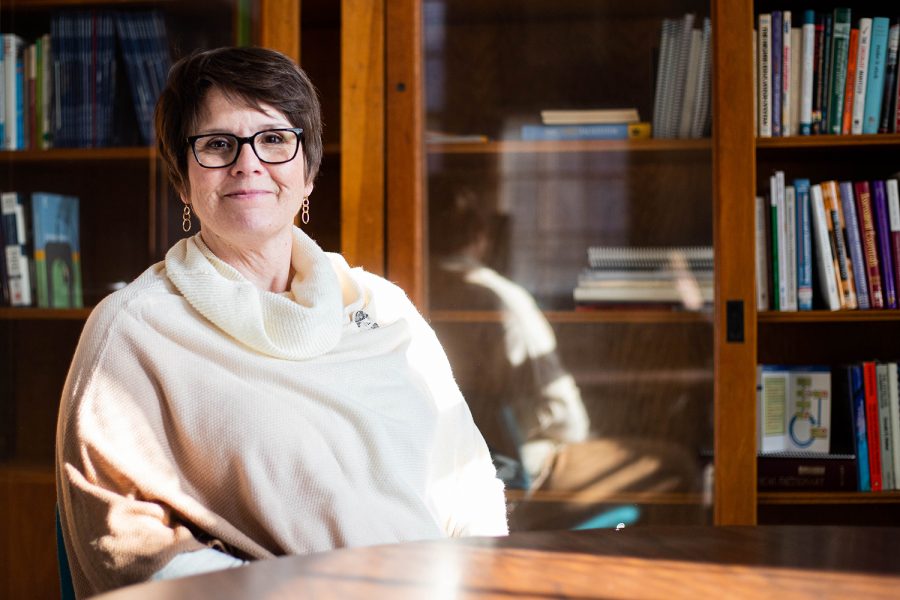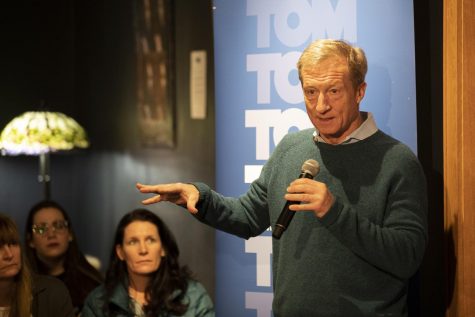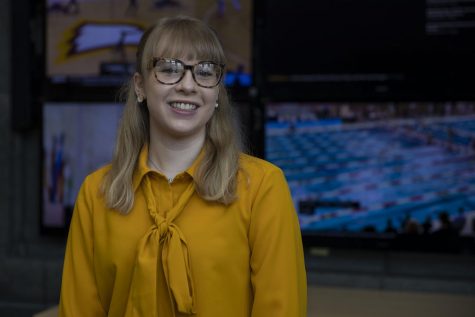UI professor receives grant to train medical field in collaboration with language interpreters
A UI professor recently received a grant supporting her simulated curriculum for training medical professionals to collaborate better with language interpreters.
Jane Miller, Director of the Office of Consultation and Research in Medical Education, poses for a portrait on Monday December 2, 2019.
December 8, 2019
Medical information and jargon relayed to patients by medical professionals can be confusing, but for non-English speakers, more confusion may occur if a language barrier exists.
University of Iowa Family Medicine Consultation and Research in Medical Education Director Jane L. Miller recently received a Nurturing Experiences for Tomorrow’s Community Leaders grant for her simulated curriculum, which encourages communication between health professionals and medical interpreters.
Her curriculum, titled “Working with Interpreters as a Team in Health care,” will train medical personnel to be more collaborative across disciplines and with medical language interpreters.
Miller created the curriculum while she was a professor at the University of Minnesota. The initial curriculum was targeted toward those studying dental and oral health, Miller said, because of disparities in the treatment of non-English speakers in that field.
Faculty and students in the Carver College of Medicine will receive her training to better serve immigrants and refugees in the Iowa City area, Miller said.
The interprofessional collaboration of the curriculum can foster an environment where patients receive safe, optimal care, heal faster, checked out of the hospital sooner, and stay out of it for longer, she said.
“What we’re proposing to do is really innovative, because it’s bringing together quality education and quality health care in a new way,” Miller said.
The simulated curriculum will have medical personnel and interpreters interact in staged scenarios and role play through how an appointment with a patient might go, she said.
“What an interpreter can do is really help the patient, if they’re allowed to do more than just interpret what the physician is saying,” Miller said. “What they can do is offer some additional information to the provider to help the provider do a better job of following up.”
Anne Woll, University of Minnesota professor in the Department of Health, was involved in Miller’s original creation of the curriculum when it was designed for oral health. The curriculum was implemented at the university in spring 2018.
The pair worked with 60 to 70 dental students when the curriculum was first implemented, Woll said. Since becoming a formal part of the dental curriculum, 120 students take the training each semester, she said.
“I think, often times, interpreters are viewed as [being part of a] service, and this training positions them as team members on an interprofessional team, which is really how we’re viewing health-sciences training,” Woll said.
Kelly Skelly, director of faculty development in the UI Department of Family Medicine, said the training will allow interpreters to be treated as more than just translators.
An interpreter has a better understanding of the culture and community of those they serve, she said, allowing them to aid healthcare providers in better understanding their patients.
“We want to make certain that as medical students and residents, our faculty take care of underserved populations and that we’re considering all of the parts of the patient,” Skelly said.





















